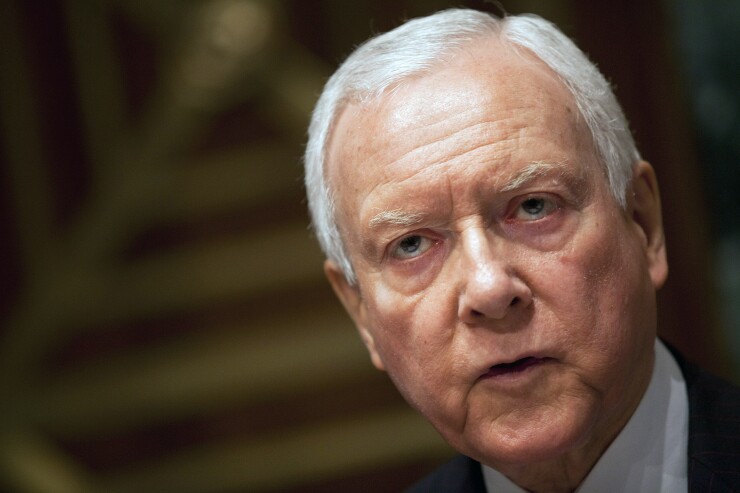WASHINGTON — Small community banks have a vehicle in the Senate for regulatory relief that passed the House in the last Congress and has won some bipartisan support.
The bill, introduced on Thursday by Senate Finance Committee Chairman Sen. Orrin Hatch, R-Utah, and co-sponsored by Sens. William Nelson, D-Fla., and Angus King, I-Maine, would raise the Federal Reserve Board asset threshold for exempting small bank holding companies from Dodd-Frank Act leverage and risk-based capital requirements to $5 billion from $1 billion.

Rep. Mia Love, R-Utah, introduced similar legislation in the last Congress that passed the House.
A much broader bill sponsored by the chairman of the House Financial Services Committee, Rep. Jeb Hensarling, R-Texas, would raise the threshold even higher, to $10 billion. That bill is teed up for a House vote in early June.
The Fed raised the threshold to $1 billion from $500 million in 2015, but bankers and lawmakers don’t think that is high enough and argue the capital and leverage requirements are hurting banks’ ability to lend.
“It is with great enthusiasm that we welcome the bipartisan introduction of” the Senate bill, said Chuck Boulier, chairman of America’s Mutual Banks and president of the $1.2 billion-asset Ion Bank in Naugatuck, Conn. “We believe strongly that small banks are engines of economic growth in communities where large multinational banks have forsaken small businesses.”





